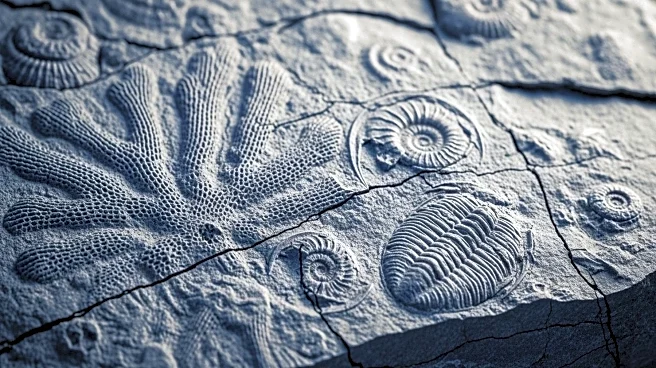What's Happening?
A team of Scandinavian paleontologists has uncovered a 249 million-year-old marine ecosystem on the Arctic island of Spitsbergen, revealing the earliest radiation of land-living animals into oceanic environments.
The discovery includes over 30,000 fossils of marine reptiles, amphibians, bony fish, and sharks, dating back to the dawn of the Age of Dinosaurs. This finding challenges the traditional view of a gradual recovery of marine ecosystems following the end-Permian mass extinction, suggesting a rapid and complex recovery with diverse marine vertebrate communities established much earlier than previously thought.
Why It's Important?
The discovery on Spitsbergen provides new insights into the recovery of marine ecosystems after Earth's greatest extinction event. It suggests that the origins of sea-going reptiles and amphibians are older than previously believed, highlighting an unexpectedly early and rich marine vertebrate diversity. This challenges existing theories about the pace and nature of evolutionary recovery following mass extinctions, offering a new perspective on the resilience and adaptability of life in the face of catastrophic environmental changes.
What's Next?
The findings from Spitsbergen may prompt a reevaluation of paleontological theories regarding post-extinction recovery processes. Researchers may focus on further excavations and analyses to understand the dynamics of ancient marine ecosystems and their implications for modern biodiversity. The study could also influence educational content in paleontology, as textbooks may need to be updated to reflect these new insights into the evolutionary history of marine life.
Beyond the Headlines
The rapid recovery and diversity of marine life on Spitsbergen highlight the potential for ecosystems to rebound quickly after mass extinction events. This resilience may offer lessons for contemporary conservation efforts, as understanding past recovery processes could inform strategies to protect and restore modern ecosystems facing environmental challenges.









